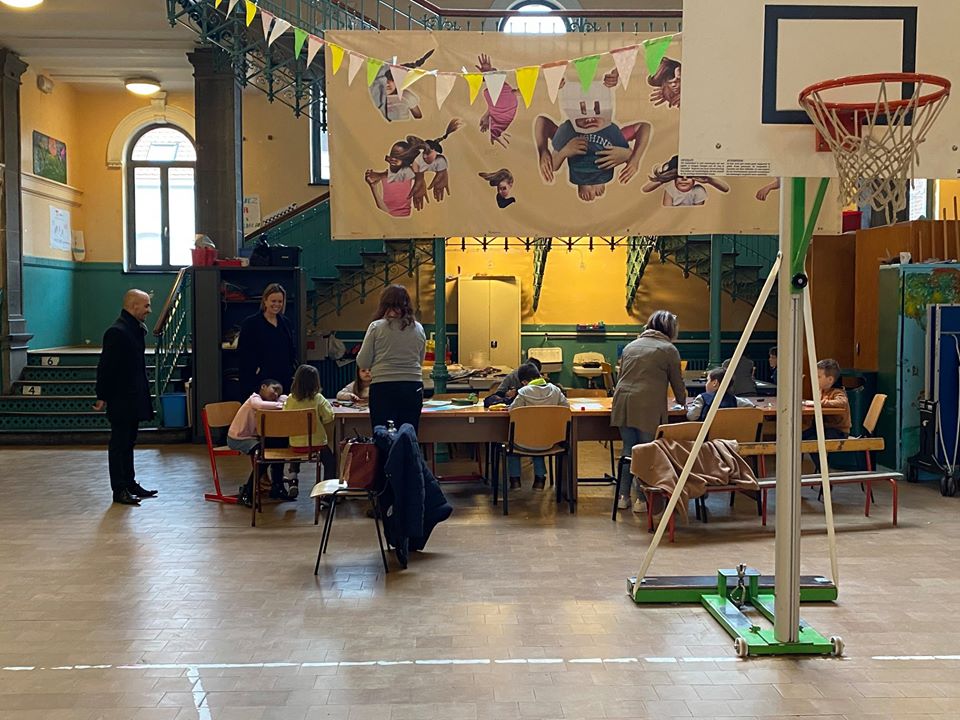All pupils in compulsory education will resume their lessons 100% in the classroom from Monday 10 May, Education Minister Caroline Désir (PS) announced on Wednesday after a meeting with the stakeholders of the French-speaking school system.
A similar announcement followed later in the day for Flemish schools.
“It is absolutely essential that all pupils return to the classroom for both pedagogical and psychological reasons, particularly for the youngest, the most vulnerable, those who have dropped out passively or actively, and pupils attending qualifying courses,” Désir said.
The Minister would have preferred to resume in-person instruction on 3 May, according to Le Soir.
But on the basis of the opinion of health experts, cautious in the face of the slow decrease in transmissions in our country, it was decided to postpone that return by one week.
“By 10 May, at the same rate, we will have vaccinated at least 600,000 additional people, certainly a large majority of the over-55s and some of the over-45s, and we will have protected the most vulnerable,” said Désir.
“Additionally, we will have deployed self-tests to better prevent clusters, in addition to the classic PCR test.”
Related News
- Schools must protect staff before resuming face-to-face teaching, education union says
- A year of lockdowns has left young athletes out of shape and out of practice, experts worry
Teachers' unions have mixed feelings about the return.
“On the one hand, we can obviously be pleased that we have seen a plateau in the number of contaminations, which allows a return to the classroom, but on the other hand, we remain in a situation where teachers lack confidence,” Roland Lahaye of the CSC-Enseignement union told Belga News Agency on Wednesday.
“Safety measures are not properly applied in all schools. And we also regret that the policy has not made teachers a priority for vaccination. Vaccines are freely administered in Ronquières, but we are told that we don't have enough vaccines for the teachers.”
The sentiment was echoed by the CGSP-Enseignement union.
“I don't think much of this recovery,” its president, Joseph Thonon, said. “We would have preferred the hybridisation to continue until 30 June. By resuming on 10 May, we will have a total of 17 days of face-to-face classes for the students.”
“For them, this is good, but for the teachers, it means taking a major health risk for just 17 days. We're going to put up to 25 teenagers in the same class, side by side. And the older you are, the more likely you are to be contaminated.”
He doesn’t rule out discontent among teachers, but also doesn’t think a strike is likely.
There were also concerns from Setca-SEL, the socialist union for all free education.
“Two health experts… took part in the meeting on Wednesday, and they stressed the absolute necessity of respecting the sanitary measures in the schools,” said Emmanuel Fayt, president of the Setca-SEL.
“However, in some of them, there is still no hydroalcoholic gel, or no possibility to open windows, either because they are too old or because they have been closed. Ventilation is the key to health safety. It is absolutely essential to avoid classrooms becoming epidemiological bombs.”
The common trade union front for teachers is due to meet in the next few hours to decide on a common position.
Note: this article has been updated to reflect that Dutch-language secondary schools will also resume face-to-face instruction on 10 May.
The Brussels Times

